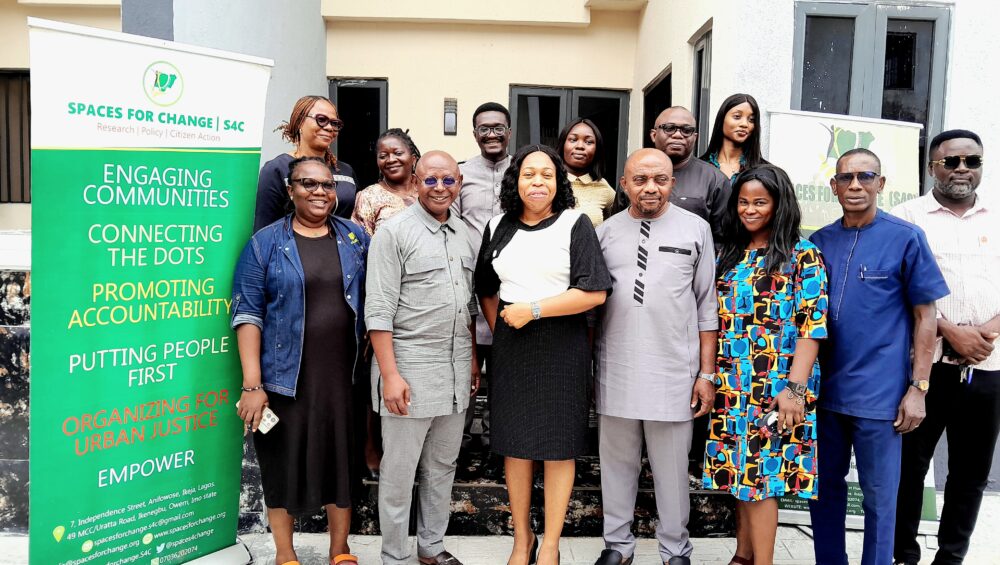By: Harriet Ijeomah
As the impacts of climate change escalate across Nigeria, Imo State finds itself grappling with extreme weather events, including flooding, excessive rainfall, and soil erosion. These climate-related disasters have displaced thousands of residents and caused significant damage to communities.
In 2024 alone, flooding in the state displaced 7,832 people and affected 60,761 others, while studies have shown that 16% of erosion incidents in Owerri are directly linked to intense rainfall. These alarming statistics underscore the urgent need for a coordinated response to address climate change and its consequences.
Spaces for Change, a non-profit organization focused on advancing environmental justice in Nigeria, is spearheading efforts to tackle these challenges. In partnership with the Imo State government, the organization established the Imo State Technical Committee on Climate Change in November 2024. This 16-member committee was inaugurated to develop a comprehensive legal framework to address climate change and promote sustainable development in the state.
On January 21, 2025 the committee convened its first drafting session at the Owerri office of Spaces for Change. The session marked a significant milestone in the journey toward producing Imo State’s first Climate Change Law.
Victoria Ibezim-Ohaeri, Executive Director of Spaces for Change, applauded the committee for its dedication and expertise in addressing one of the most pressing issues of our time. Speaking through her Senior Legal Adviser, she noted:
“This collaborative effort is a bold step toward protecting Imo State’s environment and its people. By developing a robust legal framework, we are laying the foundation for long-term climate resilience.”
The session featured a keynote presentation by Oluwatosin Akinjiola, Extractive Officer, titled “Unlocking Imo State’s Potentials: A Strategic Approach to Climate Change and Sustainable Development.” Akinjiola outlined the devastating impacts of climate change on vulnerable communities, particularly in areas such as Ideato North, Ideato South, Njaba, Nwangele, and Orlu. She emphasized the need for renewable energy solutions like small-scale hydropower, biomass, wind energy, and natural gas to mitigate these effects.
Chetachi Louis Udeh, Senior Legal Officer at Spaces for Change, explained that the draft policy is being developed through a thorough review of existing national and state-level climate laws. “We are drawing inspiration from the National Climate Change Act of 2021, while adapting its provisions to address the specific realities of Imo State,” she said.
The chairperson of the sub-committee, Maurice Obasi, urged members to leverage their expertise to ensure the policy framework is both practical and impactful.
The drafting process is being guided by a diverse group of stakeholders, including representatives from academia, government ministries, civil society, and grassroots organizations. Some notable members of the sub-committee include:
- Prof. M.N. Obasi, Environmental Expert and Professor of Law Imo State University Owerri
- Nnadozie Chukwuemeka Fortune, Representing the Chairman House Committee on Environment, Imo State House of Assembly
- Chioma Joy, ESQ, President General of Ohaji Egbema of Women Congress
- Chukwuma O. Iheanacho, Permanent Secretary, Ministry of Environment and Sanitation
- Engr. Aniebonam Ogechukwu, Director Ministry of Power and Rural Electrification
- Amb. Iroh Faithful, Country Representative, World Climate School
- Engr. Okolie, Permanent Secretary Ministry of Power and Rural Electrification
The session highlighted the urgency of tackling climate change and the importance of enacting policies that prioritize sustainable development. The draft law, when finalized, will provide a roadmap for addressing climate-related challenges and building resilience in Imo State.
Spaces for Change remains committed to working with the government, local communities, and other stakeholders to ensure the successful implementation of this critical initiative.





